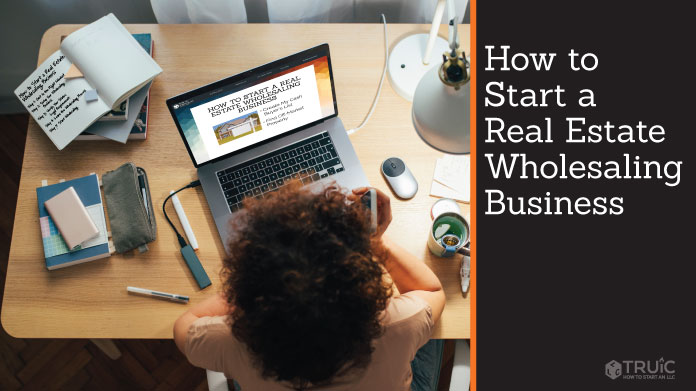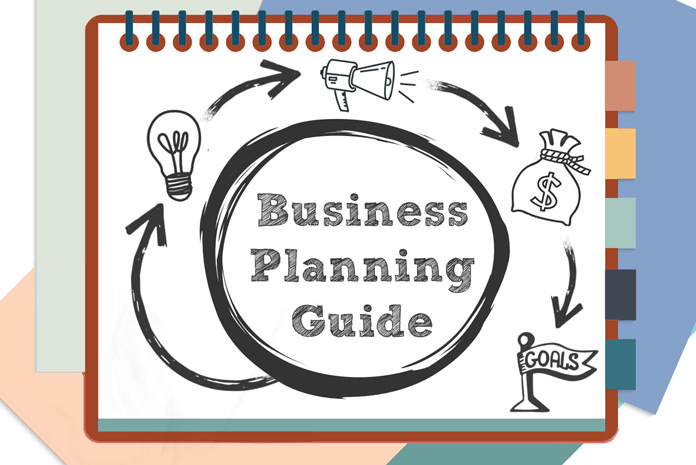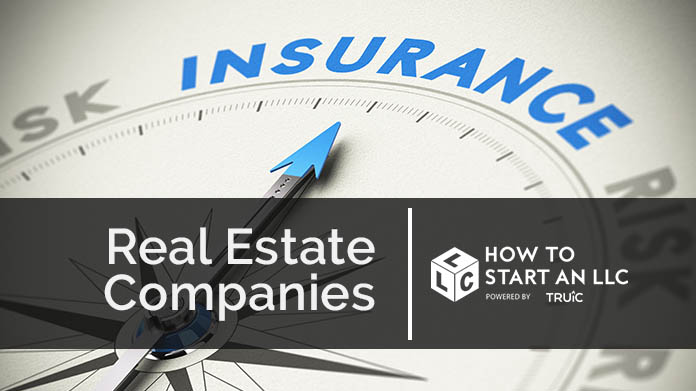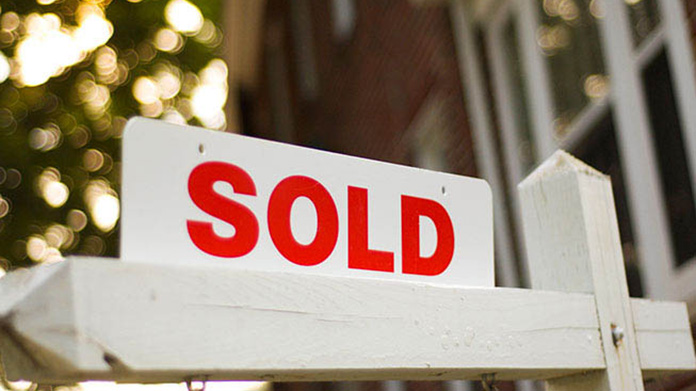How to Start a Wholesaling Real Estate Business
Starting a real estate wholesaling business is a great way to make money and gain experience in real estate investing — all from the comfort of your own home. We are here to help with this guide to starting a successful real estate wholesaling business in five easy steps.
Successful real estate investors form LLCs to track all business-related expenses, protect their private assets, and gain access to business capital and lines of credit.
Simply use a professional service to set up your real estate LLC:

LegalZoom ($149 + State Fees)

What is Real Estate Wholesaling and How to Get Started?
First, let’s talk about what real estate wholesaling entails. A real estate wholesaling business buys off-market properties at a deep discount with the intention of selling or assigning the property to another real estate investor.
This is a service-based business that will put your problem solving and creative thinking skills to the test.
From helping the customer or homeowner sell their home quickly to offering the buyer or investor a great deal on a property — you will be responsible for facilitating the introduction between the homeowner and investor as smoothly as possible to maximize benefits for all parties.
Step 1: Get in the Right Mindset
The first step to starting a Real Estate Wholesaling business is to get in the right mindset to own and operate this type of business successfully. Here are a few tips to get your mindset on the right track:
Go in with the mindset to help people — Homeowners with damaged or distressed properties are most likely anxious to get the property sold. Your efficiency and reliability will help the sale of their property be stress-free and positive.
Get ready to work — This type of business is all about dedication and creativity. Get ready to put in the effort to seek out properties and execute the buying while simultaneously searching for additional properties and cash investors.
Fine-tune your networking skills — Real estate wholesaling requires you to be outgoing, driven, and ready to communicate with homeowners and investors consistently.
Step 2: Plan Your Wholesaling Business
Setting up your real estate wholesaling business can be done in a few simple steps — building the foundation for your business to operate smoothly.
Choose a Business Structure
The first step to setting up any business is choosing a business structure. The most common business structures are sole proprietorship, partnership, limited liability company (LLC), and corporation. Your business structure informs how your business is taxed, set up, and operated.
Each of these structures suits different business needs, such as whether or not the business needs liability protection or to attract investors and whether the business needs to maintain a complex structure such as a corporation.
Generally, we recommend forming an LLC for most businesses. This business structure is easy to start and maintain, making it suitable for new and experienced business owners alike.
Protect Your Corporate Veil
Starting an LLC is a great first step to protecting your business’s corporate veil; however, it isn’t enough for long-term maintenance. To adequately protect your corporate veil prioritize the following:
- Sourcing the adequate startup capital
- Setting up a bank account and credit card separate from the owner’s finances
- Signing documents using proper titles (i.e., John Smith, as Authorized Member of ABC LLC, for and on behalf of ABC LLC)
- Documenting meeting minutes, if required in your LLC’s operating agreement
- Filing an annual report, if required by your state
Create a Website
Even if you are just getting started, creating a website for your Real Estate Wholesaling business provides credibility and allows clients to easily access necessary information about your business.
Domain Name Search
We strongly recommend that you also check to see if your business name is available as a web domain (URL). Even if you don't plan to create a business website today, you may want to buy the web address to prevent others from acquiring that domain name. It’s a free search.
Get a Logo
Every business should have a logo that is eye-catching and aligned with the business’s branding. Using our free logo maker, you can create a one-of-a-kind logo that suits your business’s needs.
Recommended: For everything you need to know about planning your new business, read a step-by-step breakdown in our Business Planning Guide.
Step 3: Verify Your State's Legal Requirements
Legal requirements for real estate wholesaling will vary on a state-by-state basis. For example, depending on their definition of a broker, some states may require you to obtain a brokerage license prior to wholesaling real estate while others may not.
It is important to verify legal requirements in your state to avoid state fines and keep your business afloat.
Example: In the state of Michigan, if you sell more than five properties, it is considered to be practicing real estate without a license; therefore, you could be subject to legal ramifications. However, this is not the case in all states. Check with your local and state government to verify any legal requirements.
Marketing Legally
Another consideration you should make prior to starting your real estate wholesaling business is how you will legally market your properties. In many states, it is illegal to market a property without proper licensing. To verify your state’s legal requirements, we recommend speaking to a lawyer prior to forming your business.
Step 4: Learn the Wholesaling Process
Now that you’ve established your business, it's time to learn how to successfully Wholesale Real Estate. Here are the steps you need to know in order to get started:
1. Find Off-Market Properties
The first step to wholesaling real estate is to find properties to sell. There are many ways to find off-market properties; however, the best method is defined by what works best in your marketplace.
A good place to start is driving for dollars. Take advantage of any free time you have and drive around your city; while you do this, look for houses with broken windows, tall grass, an excess of mail, or houses that are boarded up. Write these addresses down, compiling an organized list of potential properties that you can refer back to.
Tip: Do a little research on the properties, then remove properties that are bank-owned or purchased within the last year from your list. Ideally, the real estate you buy wholesale has been owned for at least 3-5 years.
Once you have a list of ideal properties, you can find contact information for the owners using a technique called skip tracing and make contact via handwritten postcard, cold calling, or going door-to-door.
A few other tactics to finding great wholesale properties:
-
Bandit Signs — You’ve most likely seen a bandit sign at the corner of an intersection. These are essentially small scale billboards with contact information and a pointed message such as “Cash For Houses.”
-
For Sale by Owner — This resource is a compilation of homes being sold by owners on a convenient, easy-to-use platform.
-
Buy a List From a Provider — A local provider or real estate agent may be able to supply you with a list of potential properties of areas to start your search in.
-
Reverse Lookup — This method is essentially finding the owners of a house of interest via the information you have about the property itself.
2. Identify Profitable Real Estate Deals and Avoid Bad Ones
Successfully wholesaling real estate requires you to skillfully identify good property deals and avoid bad ones. Additionally, you will need to market this information to real estate investors in order to sell the property.
Here is an example: You inquire about a property that is vacant and/or in disrepair. The homeowner is anxious to sell and isn’t using a real estate agent to avoid broker fees. This is a potentially good deal, but you need to look at the details to be sure.
Here are the factors you need to consider:
- The amount the homeowner would like for the property
- The amount of money required to repair the property of any deferred maintenance
- The taxes, utilities, and fees associated with buying the property
- The fair market value (FMV) and after repair value (ARV) of the property
How many properties should you have in your pipeline?
You should have between 20-50 leads of wholesale properties per week. This doesn’t mean you will acquire each of these properties. The aim is to keep your pipeline full of properties at various stages of acquisition to sustain a steady stream of profit.
3. Get Familiar With Offer Contracts and Language
One of the most important things you will do as a real estate wholesaler is understand how to prepare offer contracts using a local real estate attorney. These documents will be used both during your acquisition of the property and when you transfer the property to another investor.
Ensure that your contract has information crucial to the success of your assignment. This includes:
- A statement verifying your right to market the property
- A statement verifying your right to assign ownership of the property before the closing date
- A statement verifying your right to show the property so long as you give the occupants 24-hour notice if you plan to show the property to prospective buyers
What is an assignment?
An assignment is the process of assigning the purchase agreement of a property to the buyer. Rather than a traditional offer contract, an assignment allows you, the wholesaler, to sign over the property to the buyer without performing or fulfilling any obligations once the assignment is complete.
During this process, you agree that either you or someone else will buy the house before the closing date.
What is an addendum?
An addendum is an attachment to a contract that modifies the terms and conditions of the original contract. Addendums are used to efficiently update the terms or conditions of many types of contracts.
What is a contingency clause?
A contingency clause contains any conditions that need to be met by either the buyer or seller in order to continue to the next stage of the contract. The purpose of contingencies is to protect both parties. If the contingencies are not met, the deal could fail to close due to a potential breach in the contract. A few examples of real estate contract contingencies:
- The buyer has the right to do a property inspection a certain number of days prior to the final accepted offer date.
- The seller has the right to have an attorney review and approve all offer documents a certain number of days prior to the final accepted offer date.
4. Present the Offer Contract to the Homeowner
After you’ve familiarized yourself with the contract, you can present your offer to the homeowner. By this time, you will most likely have an agreed-upon amount, which makes this step fairly smooth.
5. Market Your Properties and Present the Offer Contract to Investors
In order to sell an acquired property, it needs to be marketed to potential real estate investors. This can include house flippers or real estate investors looking to lease the property.
Generally, you should have a minimum of ten investors on your roster. The amount of additional investors you source depends on a few variables, such as your knowledge level, current employment, investment capital, and comfortability.
How do you market to real estate investors?
You can find these buyers using many of the same methods shown in Step 2, such as bandit signs and cold calling. Your intention should be to find investors that have:
- Joined the National Real Estate Investors Association (REIA)
- The capital to purchase properties without the use of hard mortgage money, loans, or private mortgage money
- An understanding and respect for beginning wholesalers
- Experience in cash real estate investments
- Local meet up events
Tip: To vet potential real estate investors, ask how many properties they’ve purchased in the past week to ensure their experience aligns with your financial goals and needs.
6. Assigning the Contract to the Investors
The assignment contract is the paperwork required to assign or transfer the property to your real estate investor. This is separate from the offer contract. The assignment contract will state your agreed upon wholesaling fee for the property as well as any “Terms and Agreements” that are applicable.
Once the contract has been signed, the assignment contract will go to your title company of choice, and the agreed amount for the property will go into escrow.
At this point, it is good practice to disclose to the homeowner that this process has taken place, as well as the assignment fee you will be obtaining. Full disclose ensures that you maintain a level of trust with your clients and allows all parties to feel their needs are being met.
What is an advanced technique to make an offer in the name of an LLC, and when should I use it?
An advanced technique, also known as “Throw Away LLC,” can be used to make an offer on any property. However, it is primarily used when buying a bank-owned (REO) property.
The purpose of this technique is to form an LLC to make offers on one property until one of the offers is accepted. Once the offer is accepted, you can transfer ownership of the property from the LLC to your real estate investor.
7. Escrow
In real estate wholesaling, escrow is a legal agreement that involves the buyer temporarily holding large sums of money or property until the purchase agreement is fulfilled via an escrow officer or manager. Escrow officers are neutral third parties employed by the Title Company that protect both parties' financial interests.
In real estate, escrow is typically used for two reasons:
- To protect the buyer’s good faith deposit — ensuring the funds go to the correct party according to the conditions of the sale.
- To hold the homeowner’s funds for taxes and insurance purposes.
8. Closing the Deal
Now that the offer is accepted by all parties and you are out of escrow — you can close the deal. In order to completely close, do your due diligence to confirm the performance of the offer contract is complete and have the homeowner and investor sign all closing documents. This is usually done by the title company you or the homeowner have selected.
9. Getting Paid
Finally, the stage you have been waiting for — getting paid! In real estate wholesaling, the investor will place the agreed amount for the property into escrow via the Title Company of choice to confirm the assignment of the contract.
Once the closing is complete, the assignment contract will verify the investor’s ownership of the property, and you will receive your agreed-upon assignment fee.
Step 5: Start Wholesaling!
Now that you’ve got a grasp on the process of wholesaling businesses, it's time to start your business! For more information on how to make money in real estate investing, read our related articles below.
Related Articles
Frequently Asked Questions
As a real estate wholesaler, you can expect to make between $5,000-$10,000 per house. The number of houses you wholesale will depend on the time you are able to dedicate and the number of houses or investors in your pipeline.
Wholesaling real estate isn’t easy, but it's simple. The process of wholesaling real estate can be simple as long as you have a steady stream of properties and investors as well as a solid foundation of knowledge. Most importantly, wholesaling requires dedication and effort.
Technically, you can wholesale houses without an LLC. However, it is strongly recommended that you do form an LLC prior to wholesaling real estate.





